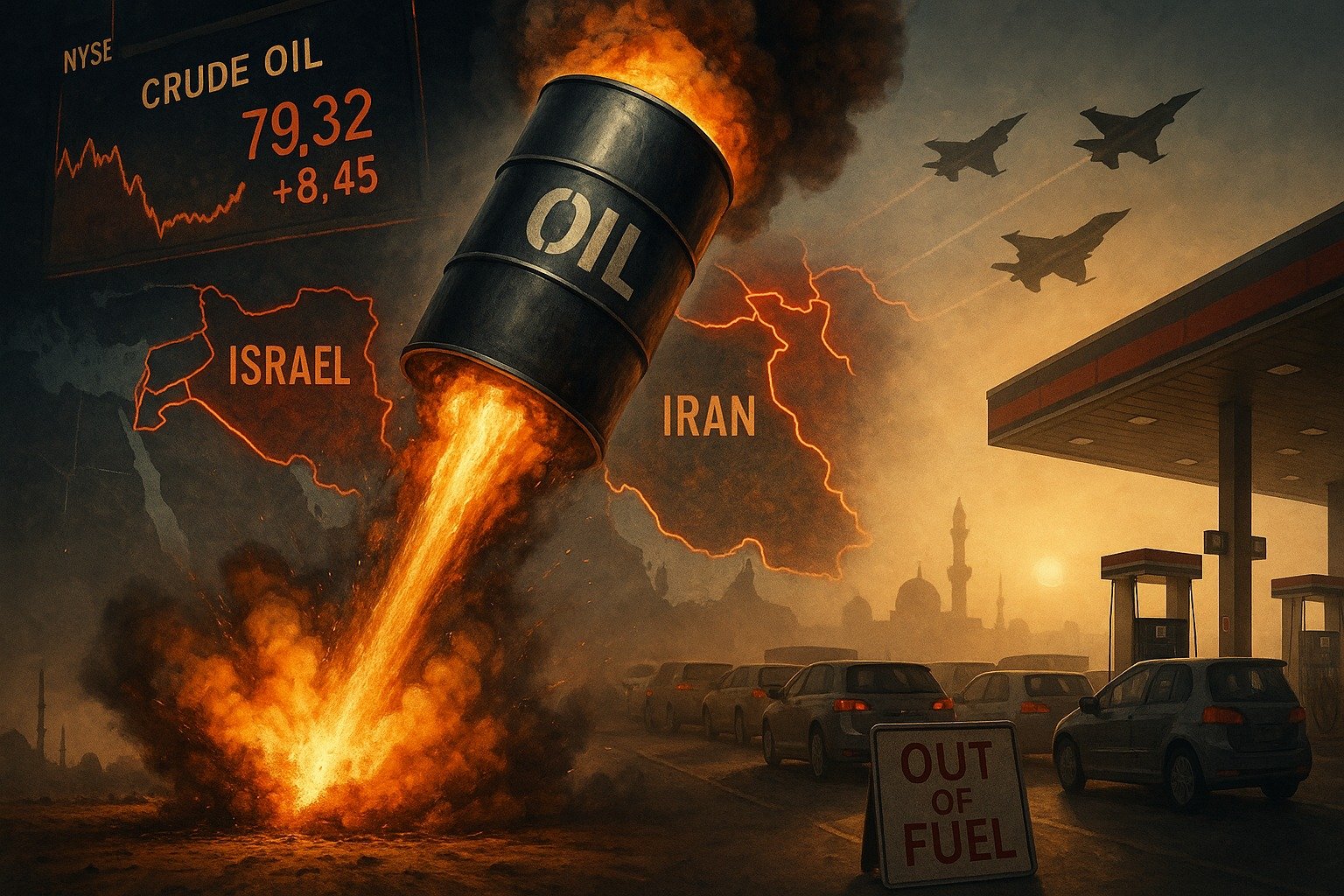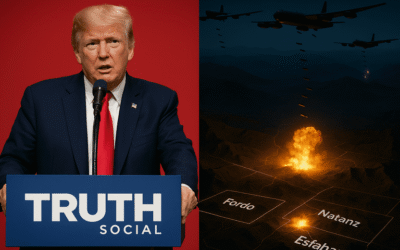The ongoing conflict between Israel and Iran has moved far beyond military headlines—it’s now shaking up global markets, particularly the oil sector. Within hours of Israel’s strike on Iranian nuclear and military sites, and Iran’s heavy retaliatory missile response, the world saw its most significant single-day oil price surge since the early days of the Ukraine war in 2022.
This article examines how this escalation between Israel and Iran triggered immediate economic ripples, what global analysts are saying, and what it might mean for consumers and governments around the world.
Oil Prices Surge to 2022-Level Highs
On Friday, crude oil markets reacted sharply to news of Israel’s surprise attack on Iranian infrastructure. By the end of the trading day:
- U.S. crude oil (WTI) jumped 7.26%, settling around $72.98 per barrel
- Brent crude, the international benchmark, rose by 7% to $74.23 per barrel
At one point during the day, both benchmarks were up by more than 13% and 14%, reflecting intense market fear over a broader regional war.
It was the biggest single-day price gain for oil since March 2022, when Russia’s invasion of Ukraine had sent global energy markets into panic.
Why Did Prices React So Strongly?
The Middle East remains one of the most critical hubs for global oil supply, with Iran alone holding the world’s fourth-largest proven oil reserves. While neither Israel nor Iran is among the top daily oil exporters globally, any instability in the region—particularly near the Strait of Hormuz, through which 20% of global oil trade passes—can instantly affect market sentiment.
And this wasn’t just about sentiment. Iran warned that any country assisting Israel militarily would also be targeted. This includes regional U.S. allies who house key oil shipping terminals and American military assets.
Such threats risk putting critical oil infrastructure at stake—something the market is highly sensitive to, even without a direct strike on a refinery or pipeline.
Analysts Warn: Inflation May Rise Again
Economists were quick to flag the risk of renewed inflation pressures if oil prices remain elevated for an extended period.
A report from Capital Economics noted:
“The main channel by which this escalation could impact the global economy would be through higher oil prices.”
And with fuel and transportation prices feeding into nearly every other economic sector—from groceries to air travel—a sustained oil price increase could complicate efforts by central banks like the U.S. Federal Reserve to cool inflation.
Jim Reid, a strategist at Deutsche Bank, echoed that concern:
“The focus is now turning to how the situation might escalate… This could be one of the most significant oil-related geopolitical crises in recent years.”
Impact Beyond Oil: Market Uncertainty and Investor Fear
It wasn’t just oil futures reacting. As missiles were fired and sirens blared across Israel and Iran:
- Stock markets turned volatile
- Gold prices surged, as investors fled to traditional safe-haven assets
- Bond yields fell, reflecting a move toward more secure long-term assets
Many energy investors are now rebalancing portfolios, anticipating further price swings depending on how the conflict develops.
What’s Next? Market Watching the “Next Moves”
Whether this price spike is short-lived or the beginning of a longer trend depends on how far both sides take this escalation.
If Israel launches another wave of strikes, or if Iran decides to disrupt the Strait of Hormuz—even temporarily—prices could soar further. Conversely, if the situation stabilizes and de-escalates through diplomacy, markets may gradually correct.
However, with both sides locked into a tit-for-tat pattern and leaders making no clear offers for negotiation, analysts say the energy markets are likely to remain on edge.
A Crisis That Goes Beyond the Battlefield
This conflict may have begun with missiles, but its impact is far-reaching. From Israeli families hiding in shelters, to Iranian hospitals treating civilians, to ordinary consumers worldwide who may soon see higher gas and transportation bills—this war is being felt across borders and economies.
And as history has often shown, in a globalized world, when the Middle East burns, the world pays attention—and often, pays more.







